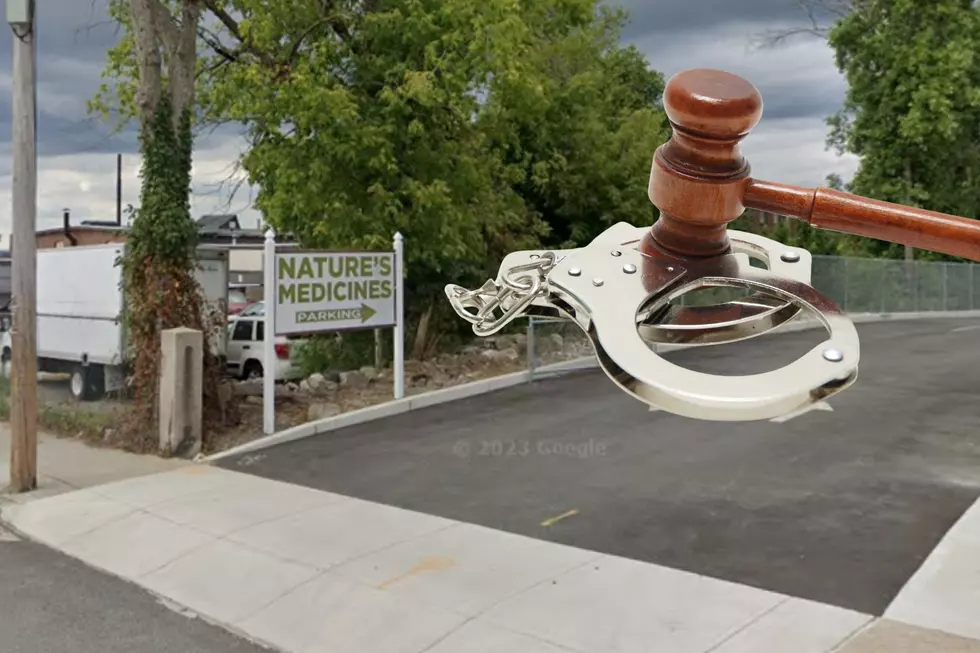
Embattled Mayor Jasiel Correia Used in Ranked-Choice Voting Pitch
BOSTON — Activists are pointing to the electoral circus involving the City of Fall River and embattled Mayor Jasiel Correia as a reason to switch to a ranked-choice voting system in Massachusetts.
Activists met at the State House Wednesday to celebrate progress on ranked-choice voting efforts and highlight bills that would allow municipalities to enact the voting reform at the local level, and legalize the process statewide.
"We're all here in this shared effort to ensure that every vote in Massachusetts has a greater voice when they go to the polls," said Mac D'Alessandro, state director for Voter Choice Massachusetts, which organized the event.
Activists argue that ranked-choice voting would have prevented Correia from winning his recall election in March with such a small percentage of the vote. The recall effort came after Correia was indicted by a federal grand jury last fall for fraud and tax evasion related to his tech startup SnoOwl.
The group gathered activists from across the state for a lobby day featuring meetings with legislators to discuss the issue.
"We need to do everything we can to expand voting enfranchisement and expand access to voting rights and democracy," said Sen. Jason Lewis of Winchester. "Ranked choice voting is an important strategy to move us in that direction."
Ranked choice voting would allow voters to rank multiple candidates in order of preference. Then when the election is tallied if no candidate gets a majority of the vote, an instant runoff occurs. In the runoff, the candidate with the least amount of votes is eliminated and those ballots are then redistributed to the voters' highest-ranked remaining candidate. The process repeats until a candidate receives at least 50 percent of the vote and is declared the winner.
Rep. Andres Vargas of Haverhill, spoke about the importance of election reform.
"There could not be a more important time in American history since the civil rights era for democracy reform issues," he said.
One version of the bill (S 414/H 719) would enact ranked choice voting in all elections except the presidential election. That would include county, state government, and Congressional elections, in both the primaries and general elections. Voters would be able to rank as many or as few candidates as they want, and the secretary of the commonwealth would be responsible for making sure voting machines are prepared. The bill calls for the reform to take effect in the September, 2022 state primary.
The other version (S 420/H 635) would make it easier for cities and towns to enact ranked choice voting for local elections. It would allow municipalities to adopt ranked choice through an ordinance, bylaw, or ballot measure. Currently, municipalities can only do this by charter commission or home rule petition, which must be approved by the state legislature.
Currently, only Cambridge has ranked choice voting for local elections, although Easthampton has submitted a home-rule petition (S 2229) to adopt it. The bill had a hearing in June and was reported favorably by the Joint Committee on Municipalities and Regional Government.
Sen. Becca Rausch of Needham, the Senate sponsor of the local option bill, said lawmakers should not get in the way of communities that want to make the switch.
"At minimum, we as a legislature, should provide an easy path forward for our towns and cities to say 'yes, we want ranked-choice voting for our community,'" Rausch said.
"That is the minimum that we should be doing."
She also said that while some critics say ranked-choice voting is too complicated, even her young children like to rank their favorite pastas and cheeses.
"If my kids can do it, the voters can do it also," Rausch added.
Reed Schimmelfing, from Northampton, pointed to the election in Fall River in March, where voters recalled Mayor Jasiel Correia II and then reelected him. While over 60 percent of voters supported the recall, only 35 percent voted to elect him, far from the majority but more than any other candidates in the five-way race.
The recall effort came after Correia was indicted by a federal grand jury for fraud and tax evasion related to his tech startup SnoOwl.
Schimmelfing said that ranked-choice voting would have prevented Correia from winning with such a small percentage of the vote.
"Ranked-choice voting does the instant runoff that would have given us a real majority voice opportunity," Schimmelfing said.
D'Alessandro said that Fall River is just a new example of a long trend in Massachusetts.
"It's just the latest in a long line of examples of how flawed our current voting system is," he said.
"We've got incidents of competitive elections with three or more candidates in which the winner does not achieve the majority and that's been going on in Massachusetts for 20 years."
Advocates said that ranked-choice voting increases voter engagement and increases diversity in elections. According to Voter Choice Massachusetts, when Maine held its first ranked-choice Democratic primary over 87 percent of voters ranked more than one candidate.
The group also points to a 2016 Bay Area study, which showed that in cities that adopted ranked-choice voting there was an increase in women of color winning office. In similar cities that did not adopt ranked-choice voting, there was a decrease.
Organizers said they are hoping for a hearing on the bills this fall, and lawmakers said this is about improving confidence in the election system.
"It's about restoring faith in our democracy, that every single vote counts and that everybody can be a candidate," Vargas said.
More From WBSM-AM/AM 1420



![Fall River Dog Is the Ultimate Adventure Buddy [WET NOSE WEDNESDAY]](http://townsquare.media/site/519/files/2024/04/attachment-Untitled-design-2024-04-24T063451.295.jpg?w=980&q=75)





